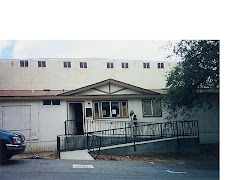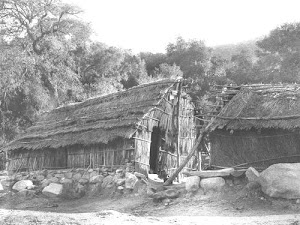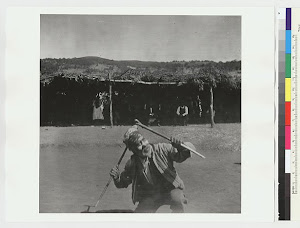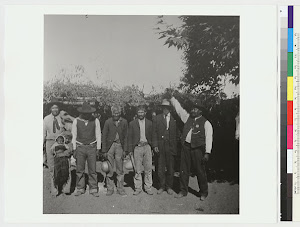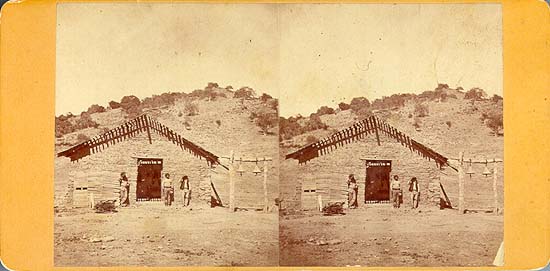I know many of our families have suffered through the boarding schools back in the day, so I wanted to share a recent post I received from a 2 spirit site about the cruelties of the boarding schools in Canada and what is happening with our sisters and brothers up there.
Recommended Website
To: Shannon
More at Hidden from History: http://www.hiddenfromhistory.org
Where are the children buried?
Posted by Brenda Norrell - January 3, 2009 at 10:38 pm
International tribunal vital for justice for residential school victims
By Brenda Norrell
Churches in Canada have not been held responsible for the rape, murder and disappearance of 50,000 to 100,000 Native American children in Canada's residential schools, said Kevin Annett, speaking on RedTown Blog Talk Radio today.
Canada has not made an attempt to provide real healing for Native people, or to prosecute the perpetrators, including those who murdered and buried children.
Annett said many of the Indian survivors of residential school abuse have taken their own lives.
"They are crushed and broken by this."
"Who will speak for the children who never came back?"
"What about all those children who died? Are we going to pretend it never happened?"
During the 90-minute program aired on RedTown, Annett said the churches pushed the Canadian government to keep these schools open, even after Canada wanted to close the schools. Now, the churches place themselves above the law, refusing to even identify where the children's graves are.
One of the survivors said after a young girl was raped by a priest, she gave birth to a child. The priest threw the baby in the furnace. On a video on the Hidden From History website, Irene Favel, survivor of Muscowequan Catholic residential school in Lestock, Saskatchewan, describes seeing a newborn baby thrown alive into a furnace at that school by a priest in 1944.
"They heard the little cry," Annett said on RedTown radio.
On Turtle Island, the genocide of Indian people was the worst genocide in the history of mankind, he said.
In Canada, the churches had a motivation for genocide. The churches stole land from the west coast tribes and sold it off to logging companies. In return, the churches received kickbacks.
Now, Canada's system of compensation payments to survivors of residential school abuse is designed to produce more trauma, as survivors relive the abuse. Using a crude system, Canada gives a number of points for abuse. For example, victims of rape or beatings are given specific numbers of points.
The survivor has to remember the name of the perpetrator. But Annett asked how many five-year-olds remember the name of the person who abused them. The survivors also have to provide proof that they attended residential school, even though many of the documents have been destroyed. Now, of those seeking compensation, 8 out of 10 have been disqualified.
Canada designed a system to victimize the victims.
"They know that when someone relives that, they will go off and kill themselves. That is not an accident, it is deliberate," Annett said.
Canada is not concerned about healing, he said. Canada is concerned about minimizing the liability. There are actions people can take to help, like recording the stories of survivors and writing letters to newspapers. Urging people to people exchanges, rather than relying on the Internet, is how change happens, he said.
In Canada, the Truth and Reconciliation Commission is holding forums which do not allow for exposure of the actual crimes or naming of the perpetrators.
"That is their plan, to whitewash the whole thing." Annett wants real observers, from outside Canada, to go to the children's graves. Then, for the children to be repatriated and charges and prosecution to follow.
Annett said it is vital to have an international tribunal resulting in charges and prosecutions.
There is also a Boycott of the 2010 Olympics underway, so the media and government will take notice of the crimes, including the Indian sterilization clinics in mass all over the west coast of Canada.
It was a crime of genocide.
Still, no one responsible for the rape, torture and murder of these children has been prosecuted. Some of the perpetrators are still alive.
Annett said his personal life was destroyed and he was defrocked by the church because he exposed the systematic genocide of Indian children by the churches in Canada. Annett described his own journey and what happened to him over the past 15 years of exposing the genocide.
Annett's own transformation began as a minister in Vancouver when he met many Native people who were suffering. He became aware of the suicides and widespread intergenerational trauma. Then Native people began talking about the abuse.
"The churches have never been prosecuted for these crimes."
Indian children were sterilized and other atrocities of Nazi Germany were carried out.
"The institutions got away with that."
Annett discovered in historical archives that early medical records reveal that 40 to 60 percent of the children in Canada's residential schools died. It was a systematic effort to kill off Indian people. Children were locked in dorms with others with tuberculosis and fast spreading diseases.
"It was germ warfare."
"They were doing it to depopulate the west."
"It is genocide. It has to be treated like any other crime," Annett said.
Referring to financial compensation for survivors, he said acts this terrible cannot be compensated or apologized away. In many cases, when money is paid to the victims of residential school abuse, there is a gag order and an agreement that the government cannot be sued.
The money that has been paid out has not solved anything and in some cases has resulted in suicides and other forms of death.
"It is designed to protect the perpetrators."
The churches widespread abuse of children was designed to wipe out Indian people. The schools began in the 1800s. The last school in Canada did not close until 1996. Besides speaking out for 15 years about the systematic genocide, Annett produced a film, "Unrepentant," which can be viewed online.
While his own personal life was destroyed, it made him realize what the church was capable of.
"Native people are disposables in our culture," he said. The abuse has not stopped. Today, police in Canada still take Native people outside of town and leave them to freeze to death.
When Annett began to expose what he found in archives, he realized there was a conspiracy of silence.
"Everything is run by the government here," he said. In Canada if anyone challenges the government or churches, he is considered a threat. He said it is a very Totalitarian government.
Annett was fired from his pulpit. "They tried to scapegoat me like there was something wrong with me."
The church offered to pay for his wife's divorce. After the divorce, he lost custody of his children. But, then the Native people began to tell him more of their stories and invite him to their healing circles.
Today, he said there is a great deal of denial in Canada. However, there is more openness from the young people when there are protests and calls for action.
"Most of the people who come by on the street are supportive of us."
The older clergy knows it is true and become angry at the protests and truth.
"I can see real change happening,"
"I'm still under a real blacklist, in terms of getting work in Canada."
When asked if he ever considered giving up, he said he did not want them to win. He wanted to be able to look his children in the eyes one day and for them to know what he did.
Annett described how he went with survivors into a Vancouver church and respectfully held up a banner, "All the children need a proper burial." Alongside him was a survivor who was almost tortured to death as a child in residential school. But after standing in that church with that banner, the man stopped drinking. He said he found a power within himself that he didn't know he had, as they were standing there together.
The priests were very angry and called the police. But when they left this church, the congregation stood and honored them.
Annett said their message to the people of Canada has been, "If it happened to your child, wouldn't you want to know where they are and what happened to them."
There were 50,000 to 100,000 Indian children in Canada that never came back from church-operated residential schools. A lot of these crimes are continuing today, as Indian children are put into white foster homes.
Now, pedophile networks are exploiting children from the reserves.
"Unless you can confront this, it is carried on. People who are abused, become the abuser." A report form UNESCO shows Vancouver is one of the top cities in the world for child prostitution.
During the RedTown Radio show, host Brenda Golden, Mvskoke (Creek) in Oklahoma, said both she and her mother are survivors of residential schools. Golden's mother was forbidden to speak her language and isolated from her family. "My mother had a detachment, my mother didn't know how to love us kids because she hadn't had that."
Annett relayed the story of a survivor and how an eight-year-old was stretched out on a rack in a residential school in a form of Medievil torture. "He saw someone die on that rack." But the survivor said he had been taught his own traditions and that is how he survived.
"When you lose touch with the spirit, you start dying from the inside out," the survivor said.
Annett said this is what happened to white people, to Europeans. They lost touch with the spirit.
"We survive by remembering who we are."
This was a war and some children survived it, but they carry this with them, at a cellular level. He said we all have to find out how to heal ourselves, with the traditions passed on.
What Annett discovered, and lived through, is the dark side of the culture in Christianity.
While Canadian churches are fighting the exposure of this truth, Golden said in the United States people refuse to believe that the US government sterilized Indian women.
During the show, one caller, Kathy from Florida said, "If we are not a watchdog for the children, we will have no future. She said her brother is a survivor of residential school in Ireland. "It happens everywhere."
In closing Annett spoke of his ancestor Peter Annett who was also persecuted for speaking out. "The power of one person speaking the truth is something we must honor."
"People are judged by their actions, instead of their words."
Praising the qualities of Native people, Annett said Indian people have withstood the genocide because of their great strength. Now, all of humanity must struggle together if mankind is to survive. "It is how we are going to survive, together now, if we are even able to," Annett said, pointing out the destruction of the old growth forests.
When asked about his current beliefs, Annett said he is a spiritual person, but not in a way that he expected.
"I feel a deep peace inside. I feel I have done the right thing."
More at Hidden from History: http://www.hiddenfromhistory.org/
Wednesday, January 7, 2009
Justice for residential school victims
Posted by
Karen Vigneault Librarian
at
8:39 AM
0
comments
![]()
Tuesday, January 6, 2009
2009 Native American Student Artist Competition
Entries for the 2009 Native American Student Artist Competition (SAC) are continuing to arrive! We at the Office of Indian Education want to remind everyone that students must register their entries, and artwork and essays must be postmarked by Friday, January 16, 2009. We have also provided a few tips for artists and writers entering the competition.
Don’t Forget to Register!
Students can register their entry online or call our toll-free number 1-866-259-0060. If you register online you will receive an Application and Release form in your registration confirmation. If you register over the phone, we will send you an Application and Release form. Important! We must receive your artwork with your signed Application and Release form. Complete SAC Instructions
Art Tips
Working with oil-based paints: when painting with oil-based paints, you always want to start with the background and work your way forward. To get your foreground colors to pop, apply wet paint only to previous layers of wet paint.
Working with watercolor paints: to prevent your colors from bleeding into each other and making your painting look messy, use a hair dryer to dry each color.
For more art tips, visit the Artist Circle on the OIE kids website.
Writing Tips
Don't expect a perfect essay when you start out. A great essay takes many drafts to write, not just one or two - more like 10 to 12.
Keep all of your drafts, doodles, ideas, brainstorms, or anything that helped you with your writing in one place. A folder or notebook works great.
Plan on writing in chunks of time from 15 minutes to 1 hour per day.
Give yourself time to think about what you want to say. Digest what you have written and come back to it the next day. Re-read what you wrote and decide whether revisions are warranted.
For more writing tips, check out the Artist Circle on the OIE kids website.
Questions about the SAC? Contact Rayanne Ganuelas at rganuelas@kauffmaninc.com or 1-866-259-0060.
Posted by
Karen Vigneault Librarian
at
3:52 PM
0
comments
![]()


